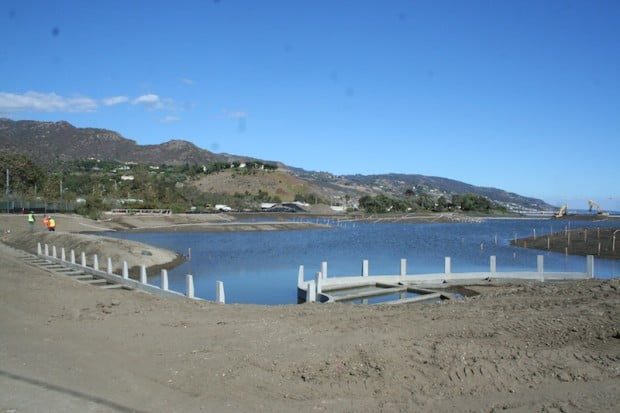
The Malibu Lagoon Restoration Project remains on schedule to finish by Jan. 31, according to Craig Sap, the State Parks Angeles District superintendent. Workers have an estimated 1,000-2,000 cubic yards (10-20 truckloads) of soil to off-haul and 20,000 plants to finish planting.
Trucks have also removed close to 3,000 cubic yards of trash and debris that was found in the lagoon. Preliminary estimates said up to 13,000 cubic yards of “super enriched,” nontoxic soil would be removed from the site, but that number turned out to be much lower.
Mark Abramson, senior watershed director for the Santa Monica Bay Restoration Commission, said the clay content in the soil caused it to shrink down.
“Clay soils tend to expand when wet and shrink when they dry,” Abramson said.
Sap estimated the off-hauling to landfills in Simi Valley and Lost Hills would begin in the next two or three weeks. As the soil was dug up and dried out during the project, crews reused much of it to build two temporary dikes onsite. Those barriers were later removed as crews completed wetlands work.
State workers are also laying down planks for a “winter walk”— a winding walkway on the western side of the lagoon designed to allow visitors to walk next to the lagoon at water level.
Construction in the wetlands portion of the lagoon was required to be completed by Oct. 31. Since then, crews have continued to work in the dry regions of the lagoon where vegetation has to be planted and aesthetic additions such as the winter walk have to be installed by the end of January.
Barring any setbacks, Sap said the lagoon could open the first week of February.
“There’s a chance the contractor will ask for extra time,” Sap said. “We don’t foresee that but we have to plan for it.”
The controversial project to reshape the lagoon got underway in June despite legal challenges and protests from the City of Malibu and local opponents who argued the planning was flawed and the project would do more harm than good.
